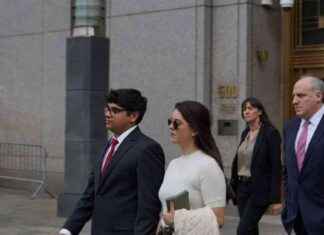MADRID, 6 Mar. (EUROPA PRESS) –
The president of the Higher Sports Council, José Manuel Franco, has assured that they must “continue taking steps” to “dignify the role of women in sport”, and has affirmed that as long as there is “discriminatory treatment” there is “a long way to go “.
The Secretary of State for Sport has closed this Tuesday the first day of ‘Gender Equality in Sport’, which has taken place at the headquarters of the CSD on the occasion of the celebration of International Women’s Day next Wednesday 8 March.
“We must continue taking steps to dignify the role of women in sport. As long as there is discriminatory treatment, in all facets of life and also in sport, those of us who believe that there is still a long way to go must be there. Therefore, the Higher Sports Council will always be there and support this cause,” Franco said.
He also assured that the Executive has allocated a historic budget of 1.8 million this year to promote the role of women in sport, and that throughout the legislature, and from the Recovery and Resilience Funds of the European Union , 80 million will be invested for this purpose.
During the inauguration of the event, the deputy general director of Women and Sport, Bárbara Fuertes, spoke about the importance of raising social awareness and the visibility of female athletes, which, she says, are “the best policies for equality”. “There must be commitment, responsibility and collaboration from all sports agents and from all of society,” she insisted.
In this context, he announced that, on the occasion of the Spanish Presidency of the European Union in the second half of the year, a Conference on ‘Gender Equality in Sport’ will be held with the participation of representatives of the EU itself, the Council of Europe, the Ibero-American Agency and UNESCO, among others.
In addition, a panel discussion was held on ‘New opportunities for the visibility of women in sport’, with the participation of Carlota Castrejana, current director of the Women’s Sports Institute; Joanna Pardos, director of the documentary ‘Alexia: Labor Omnia Vincit’; and Carolina Jiménez, head of digital communication for OÉ OÉ Marketing and the Universo Mujer Tour. The debate, which was moderated by the advisor to the president of the CSD, Judith Masià, emphasized the importance of combining the presence of women in traditional communication spaces and in new formats.
Two studies related to the presence of female athletes in the media were also presented: ‘The visibility of female athletes on radio and television’ and ‘Sport and language bias’.
The first was presented by Heidy Ríos, a researcher at the Indexa Geodata company, who was reeling off the conclusions after analyzing almost 5,000 news items published over 500 days. Among them, the fact that women are only present in 8.2% of the news that appear on television, and in 15.4% if we refer to the radio. Regarding language analysis, the channel in which the highest percentage of discursive bias and lexical asymmetries is recorded is television, with a percentage of 79.8%. When analyzing who voices the news, on television 31% of the time they were men, compared to 15% women; on the radio the percentages stand at 79% for men compared to 18% for women.
In the second study on language bias, Clara Sáinz de Baranda, director of the Institute for Gender Studies at the Carlos III University of Madrid, explained that in 44% of the information analyzed the information treatment is asymmetric. Despite this, she highlighted that in the last decade there has been a tendency for these asymmetries to disappear. Regarding discursive biases, he assured that they are still present in cases such as the comparison with men’s sports, relating athletes and their successes with non-professional reasons, even going as far as setting aside sports information in the story and highlighting other types of information that are nothing They have to do with sports.
This Tuesday the second day on ‘Gender Equality in Sport’ will be held, which will host three discussion tables. The first on ‘The day after goodbye’, with the participation of the general director of ADO and former Olympic water polo player, Jennifer Pareja; the director of competitions of the Spanish Basketball Federation (FEB) and former basketball player, Elisa Aguilar; and the Spanish captain of the Billie Jean King Cup and tennis player, Anabel Medina. Lucía Santiago, CSD press officer, will be the moderator of this talk.
Next, and under the leadership of José Manuel Franco, the table ‘Five decades, five voices’ will take place; in it, Isabel Rodríguez, one of the first professional Spanish pelotaris; Mari Paz Corominas, the first Spanish woman to reach an Olympic final; Conchi Bellorín, current leader of the CSD and former judoka; Sara Hurtado, ice skating coach; and Adriana Cerezo, international taekwondo athlete and Olympic runner-up in Tokyo.
To conclude, there will be a panel discussion on ‘Women and disability’, with Lydia Sempere, car driver with profound bilateral deafness; Adi Iglesias, a Paralympic sprint athlete who has only 10% vision due to albinism; and Desirée Vila, also a Paralympian who competes in the long jump and 100m with a prosthetic leg after having her leg amputated. The conversation will be moderated by the adviser to the president of the CSD Nerea Huete. Susana Mayo, deputy deputy director of the CSD’s Women and Sports Department, will present the conclusions at the end of this session.
The CSD Women’s Week began on Sunday with the delivery of an honorary award to Dragones de Lavapiés in recognition of the work carried out by the club to promote gender equality through sport.







